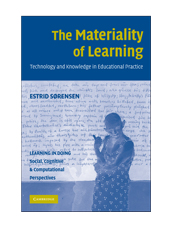1 - A Minimal Methodology
Published online by Cambridge University Press: 15 September 2009
Summary
Yet school officials here and in several other places said laptops had been abused by students, did not fit into lesson plans, and showed little, if any, measurable effect on grades and test scores at a time of increased pressure to meet state standards. Districts have dropped laptop programs after resistance from teachers, logistical and technical problems, and escalating maintenance costs.
Such disappointments are the latest example of how technology is often embraced by philanthropists and political leaders as a quick fix, only to leave teachers flummoxed about how best to integrate the new gadgets into curriculums. Last month, the United States Department of Education released a study showing no difference in academic achievement between students who used educational software programs for math and reading and those who did not.
Hu Winnie, New York Times, 4 May 2007In 2006 public schools in the United States had on average one computer per 4.2 pupils, which is equivalent to a total of more than 53 million computers (U.S. Census Bureau 2007, table 248). In 2006 Danish schools provided a new computer for every 4.9 pupils (UNI-C 2007). Converted to monetary value, this amounts to an investment, in the United States, of more than $30 billion, which is almost $240 per American household. In addition to this amount is the cost of software, maintenance, training, Internet access, and so on. What has all this money been invested into?
Information
- Type
- Chapter
- Information
- The Materiality of LearningTechnology and Knowledge in Educational Practice, pp. 1 - 29Publisher: Cambridge University PressPrint publication year: 2009
